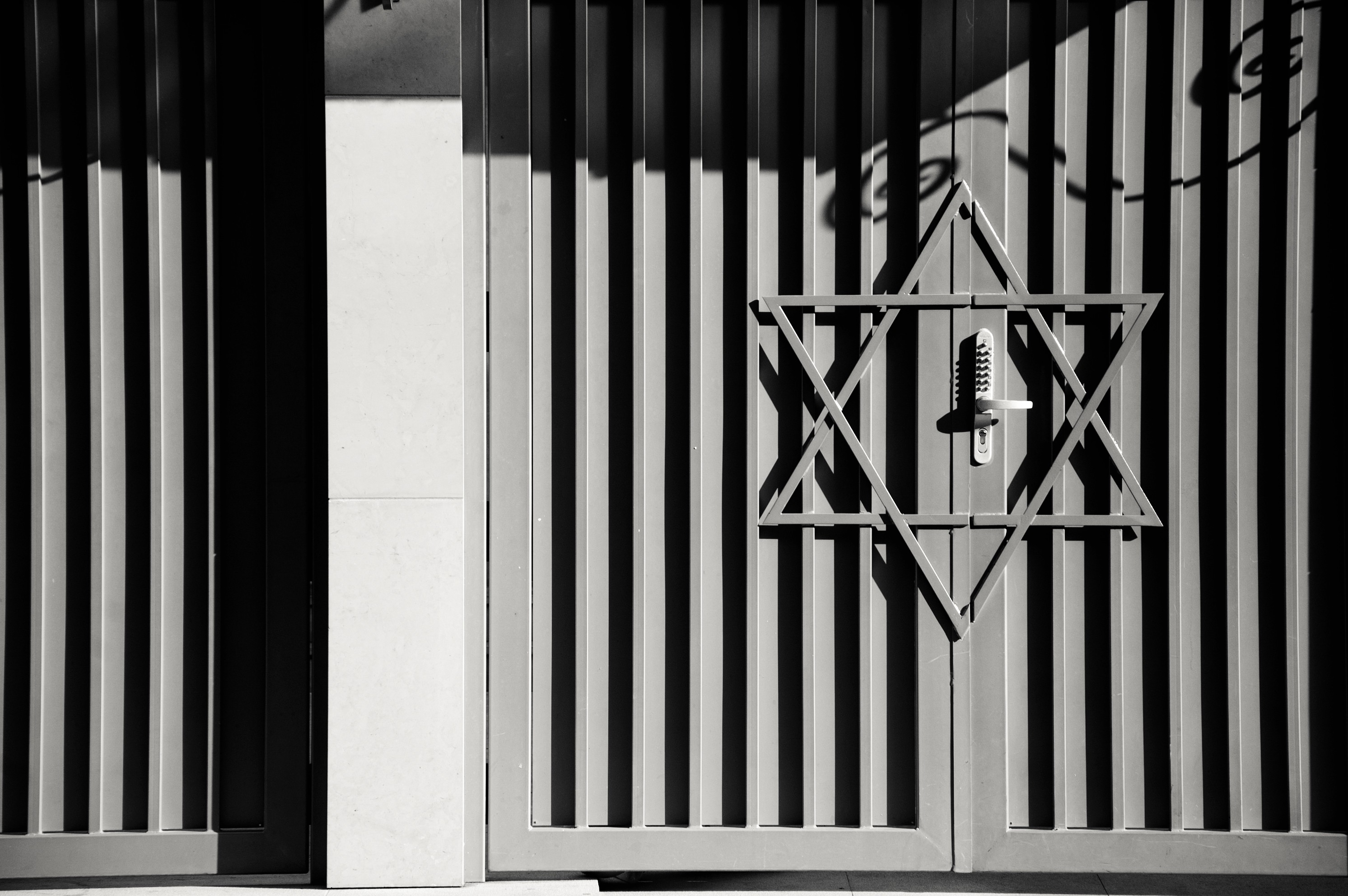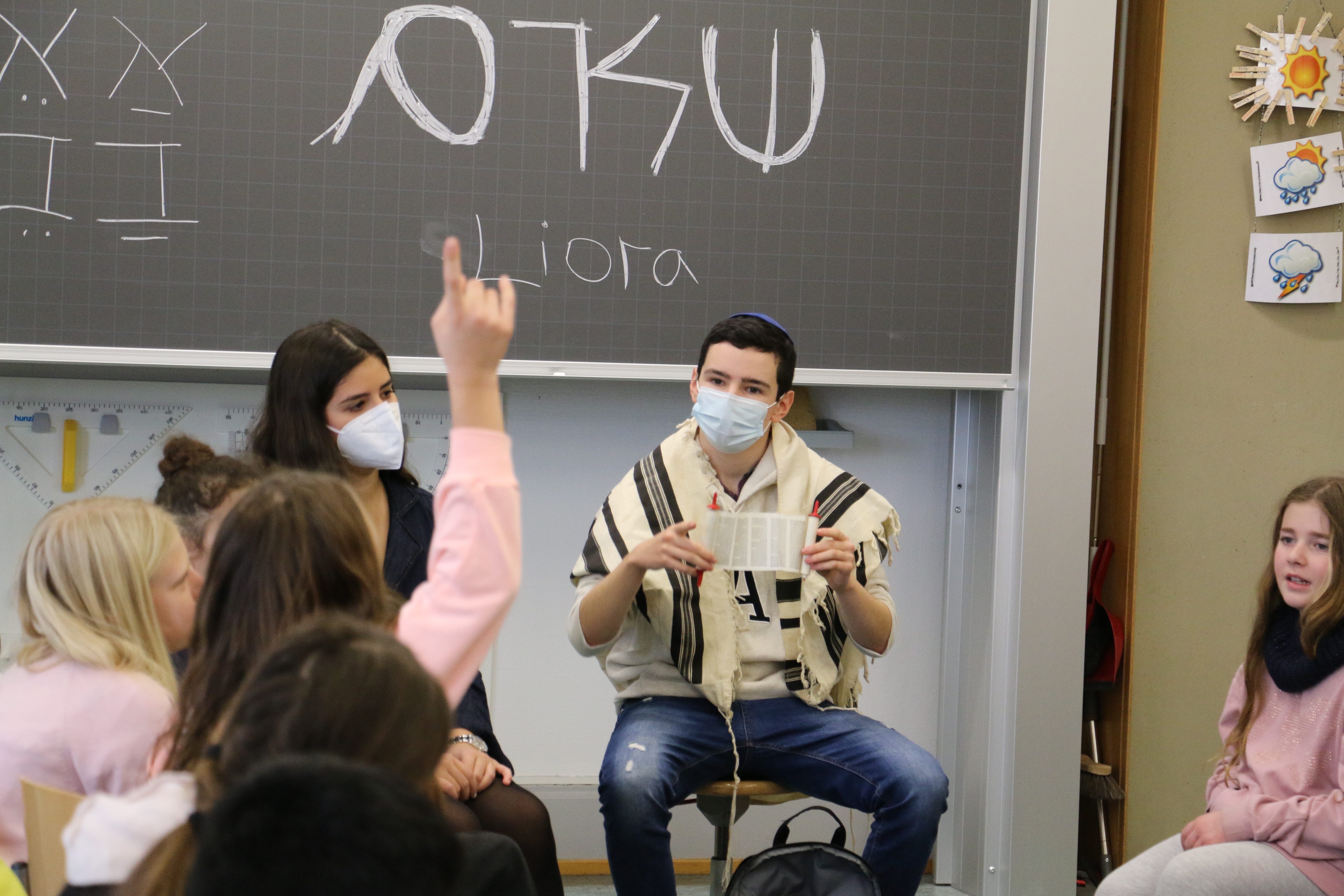Security and extremism
The threat of terrorist attacks against the Jewish community has become more severe. The required security measures represent a great financial burden for the Jewish community and institutions.
The Jewish community and its institutions in Switzerland are facing an increased level of risk. Meeting places, synagogues and schools can become targets of terrorist attacks that can happen at any time. The threat stems especially from extreme right-wing and Islamist groups. This appraisal is based on the experience of several terrorist attacks around the globe and on the current European environment. The Swiss Federal Intelligence Service FIS confirms this assessment of the situation in its annual report, and considers Jewish and Muslim communities in particular to be at risk. For the past ten years, the SIG has made great efforts to ensure more comprehensive protection for Jewish establishments and an appropriate state contribution to the costs involved. As an umbrella organisation, the SIG also plays the role of coordinator between communities, institutions and the authorities responsible for security.
Level of threat from right-wing extremists and Islamists has risen
For over ten years, Europe has been confronted with a rising threat of extremist violence. Numerous terrorist attacks over this period show that this threat is no passing phenomenon, but a real and ongoing security risk. More than a dozen European countries have been affected, which also shows that such terrorist activities know no borders. They have repeatedly been directed at Jewish institutions. The attacks on the Jewish Museum in Brussels, a synagogue in Copenhagen, a Jewish school in Toulouse, a supermarket for kosher goods in Paris and a synagogue in Halle are examples of targeted aggression, motivated by antisemitism, against the Jewish community. Examples from outside Europe include the attacks on the synagogues of Pittsburgh and San Diego in the United States.
The 7 October 2023 terrorist attack by Hamas on Israel and the subsequent war in Gaza exacerbated the security situation for Jewish people and institutions in Switzerland. Far from scaremongering, the risk assessment turned out to be all too accurate. The numerous antisemitic incidents show in many cases an open potential for violence on the part of certain perpetrators. The stabbing of a Jewish man in Zurich-Selnau represented a sad escalation. Physical attacks on Jewish people have generally reached an all-time high. Various Jewish institutions have also become targets for graffiti and even attacks. For example, there was an attempted arson attack with petrol on a synagogue in Zurich. Taken together, these attacks reflect the greatly increased level of antisemitic incidents. This situation is exacerbated by the strong emotions driving conflicts in the Middle East, which are also promoted by radical, extremist groups and individuals in Switzerland. The Federal Intelligence Service currently considers this dynamic to be dangerous for Jewish and Israeli institutions and people.
Security costs represent a great burden
The Jewish community in Switzerland has had to meet increasing security requirements for decades. Reactions to the renewed spike in threat over the past few years have been swift. Security concepts were updated and tightened. This includes the protection of buildings, security personnel and training. The ensuing costs represent a great burden for Jewish communities. No compromises can be made regarding customised security for Swiss institutions, which means that security measures cannot be reduced despite the financial burden. Jewish communities reached their financial limits years ago and therefore had to cut costs in other areas such as education, training and events. This has a direct impact on the core of a religious community – the practice of its religion.
Federal support for security measures since 2017
After years of debates about who is responsible for security measures, the fact that the state of affairs was unsatisfactory was acknowledged by the Federal Council in 2017. In November 2019, the Swiss government finally adopted the «Verordnung über Massnahmen zur Gewährleistung der Sicherheit von Minderheiten mit besonderen Schutzbedürfnissen» (Ordinance on measures to ensure the protection of minorities with special security needs VSMS). The ordinance is in line with the Federal Council’s decision of July 2019 to strengthen the protection of threatened minorities and to support them in the financing of security measures. It also defines measures based on the security concept that was proposed by a working group consisting of representatives of cantons, municipalities and the minorities concerned, including the SIG. The ordinance provides for financial assistance for security-related projects of the minorities in question in the fields of construction and technical measures, education, awareness raising and information.
The first rounds of support showed high demand
In subsequent years, the Confederation earmarked annual sums of up to only CHF 500,000 for the above-mentioned measures. On this basis, the Federal Office of Police (fedpol) have launched three application cycles from 2020 through to 2022. The projects submitted by Jewish communities focused primarily on construction measures to increase security at synagogues, schools and communal centres. The large number of applications submitted highlights the Jewish community’s urgent need of support in security matters. From 2020 to 2022, 27 applications in all were approved, 23 of which stemmed from the Jewish community. However, the need for financial means to improve security at Jewish institutions clearly exceeded the amounts available, which means that several applications for support had to be rejected. This clearly showed that further funds towards ongoing security costs are urgently required.
In April 2022, the Federal Council finally decided to raise the Confederation’s annual contributions from CHF 500,000 to CHF 2.5 million in all as of 2023. This made additional funds available for the Confederation to support comprehensive security concepts for the protection of institutions at risk. For the first time, the government has now taken full account of the high running costs needed to provide security for such institutions. The high demand for support was evident in the number of applications approved in 2023. Of the 34 applications approved in 2023 alone, 26 were for the Jewish community. The urgency of the newly created support for security concepts is demonstrated by the fact that there were 19 projects in this category alone.
Insufficient funds were further increased by Parliament in 2023 and the Federal Council in 2025
This number of authorisations was offset by unapproved applications, which generally could not be processed due to insufficient funds. In 2023, this was demonstrated by the many outstanding and necessary security measures of Jewish institutions and the associated ongoing security costs, which were a burden on the Jewish community. The SIG also assumed that Jewish communities and Jewish institutions would have to provide several million francs in funding themselves due to their precarious position. The general situation worsened considerably since the outbreak of the Gaza conflict, as security measures have had to be increased. There is still no end in sight to this situation. On this basis, in December 2023, Parliament approved an increase in funding for security measures for vulnerable minorities by a further CHF 2.5 million, with a remarkably high level of approval in both chambers. This should secure funding for all applications for 2024. In January 2024, 34 projects totalling CHF 4.7 million were finally approved, 32 of them from the Jewish community. Of the 36 applications approved in 2024, 34 were from Jewish institutions, with the number rising to 44 in early 2025, 37 of which were from Jewish applicants.
In May 2025, the Federal Council concluded that a further – temporary – increase in funding was necessary. With the security situation still tense, the applications submitted for financial participation in protective measures far exceeded the available funds. Financial support for at-risk minorities was therefore raised by CHF 1 million per year. This will increase the amount from the previous CHF 5 million to CHF 6 million for the years 2026 and 2027.
Cantons and cities called upon to provide support
Right from the beginning of the process, the Confederation asked the cantons to contribute their share of the costs. In the meantime, almost all cantons and cities with larger Jewish communities have decided to contribute to security costs. The canton and city of Zurich and the cantons of Basel-Stadt, Geneva and Bern have implemented more extensive financial aid and solutions. The canton of Vaud and the cities of Biel, Lausanne and Winterthur have provided further support.
The SIG demands more extensive solutions in security matters
The decision by Parliament to increase funds in late 2023, followed by the Federal Council in May 2025, came at the right time. This is the urgently anticipated response to the tense security situation. Financial relief will not be felt immediately; there will be a delay as authorisation and implementation processes take place. Until then, Jewish communities and institutions will have to continuously adapt to the security requirements in order to protect members, facilities, schools, etc.
The SIG is very satisfied and welcomes the fact that this responsible action by Parliament and the Federal Council will significantly reduce onerous security costs for Jewish communities and institutions.
-
Further information
-
Decree on measures to ensure the protection of minorities with special security needs VSMS
(only in German, French and Italian)
-
SIG Media Release 13.04.2022 «Der Bund erhöht die Mittel für die Sicherheit gefährdeter Minderheiten»
(only in German and French)
-
SIG News 01.02.2021 «Finanzhilfe durch Bund, Kanton und Stadt Zürich»
(only in German and French)
-
SIG Media Release 04.07.2018 «Schutz gefährdeter Minderheiten – Der Bund beschliesst mehr Unterstützung»
(only in German and French)
-
SIG Media Release 17.11.2016 «Sicherheit der Schweizer Juden: Jüdische Dachverbände nehmen Bund in die Pflicht»
(only in German and French)




